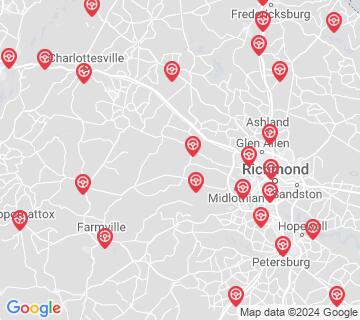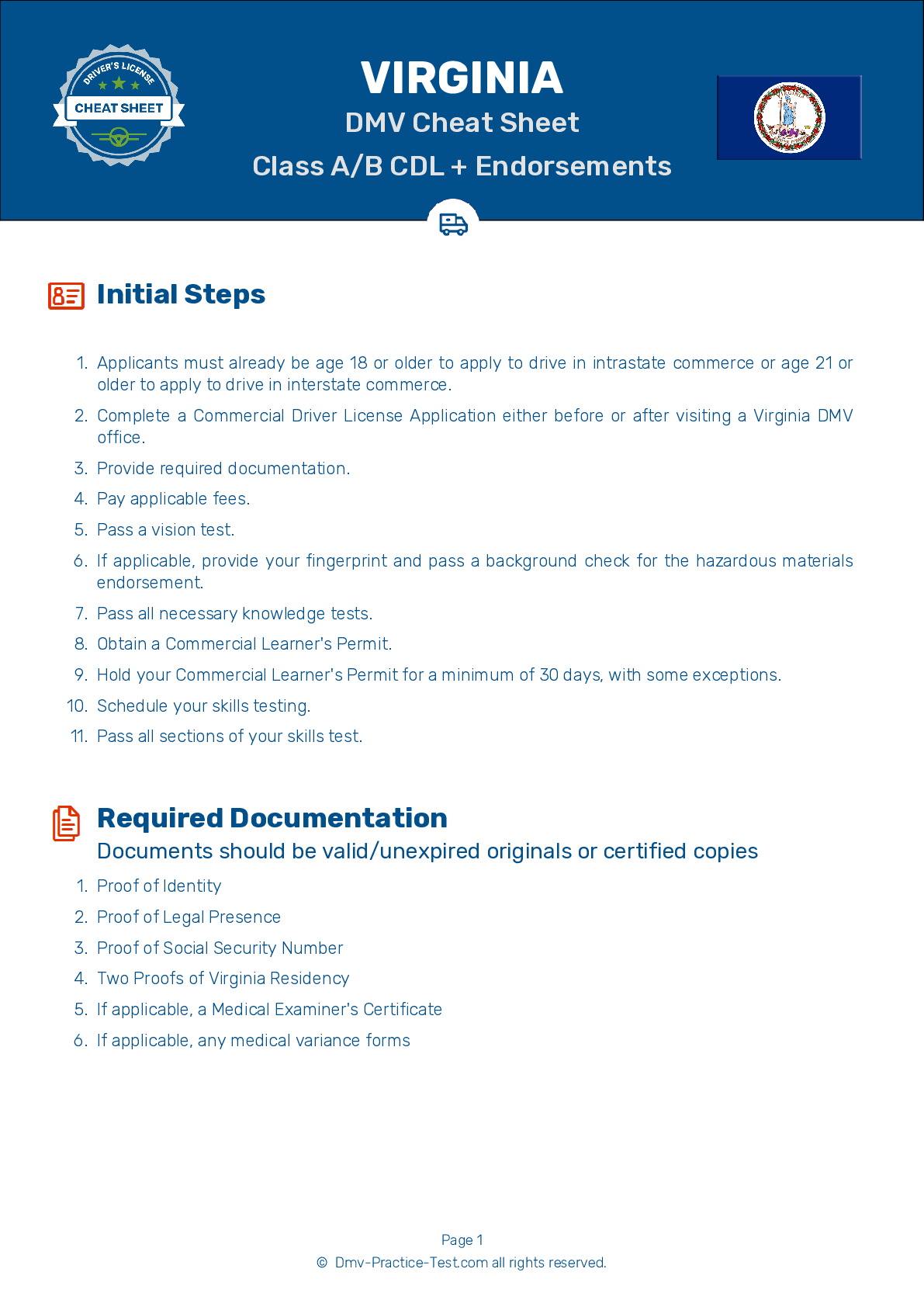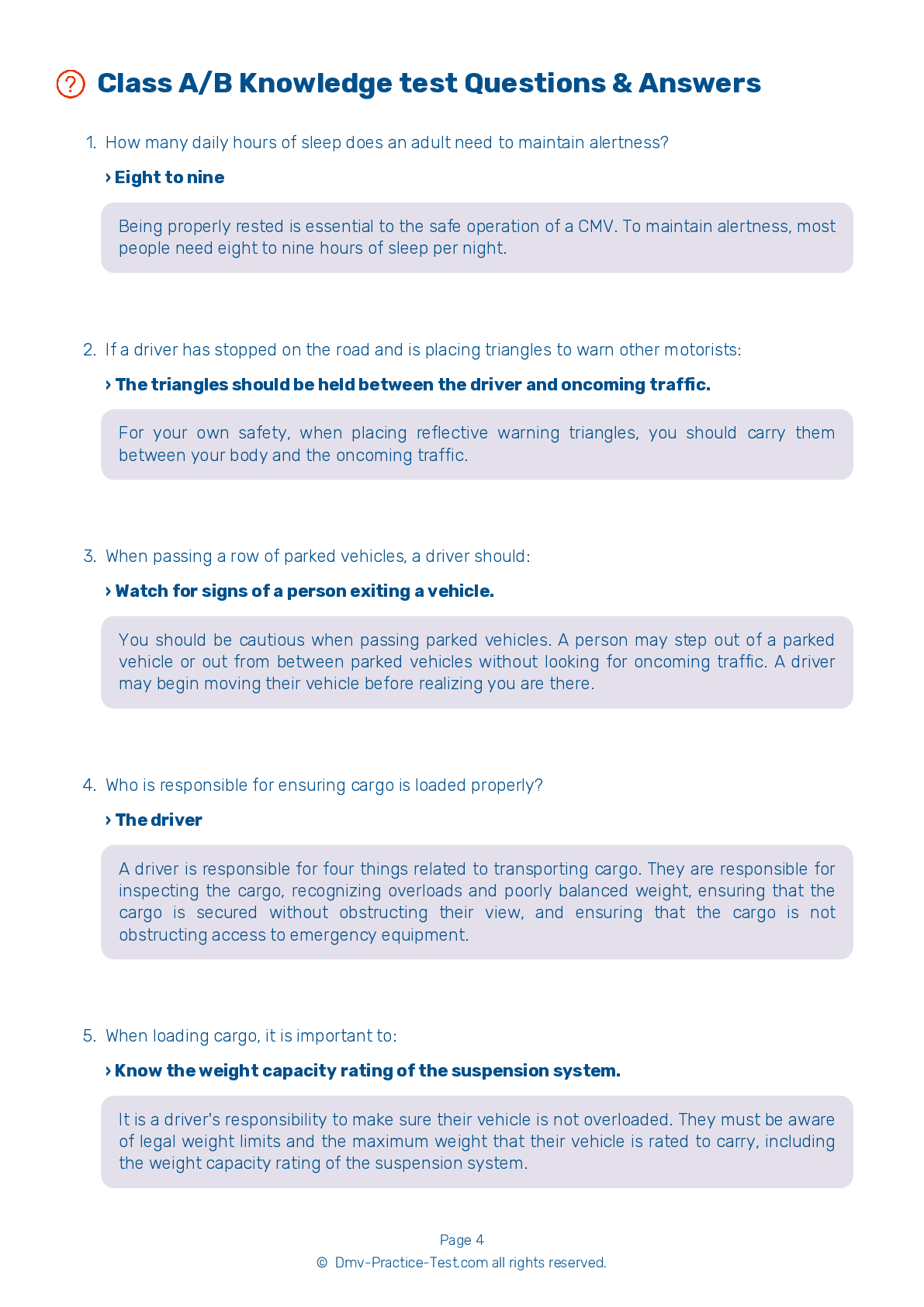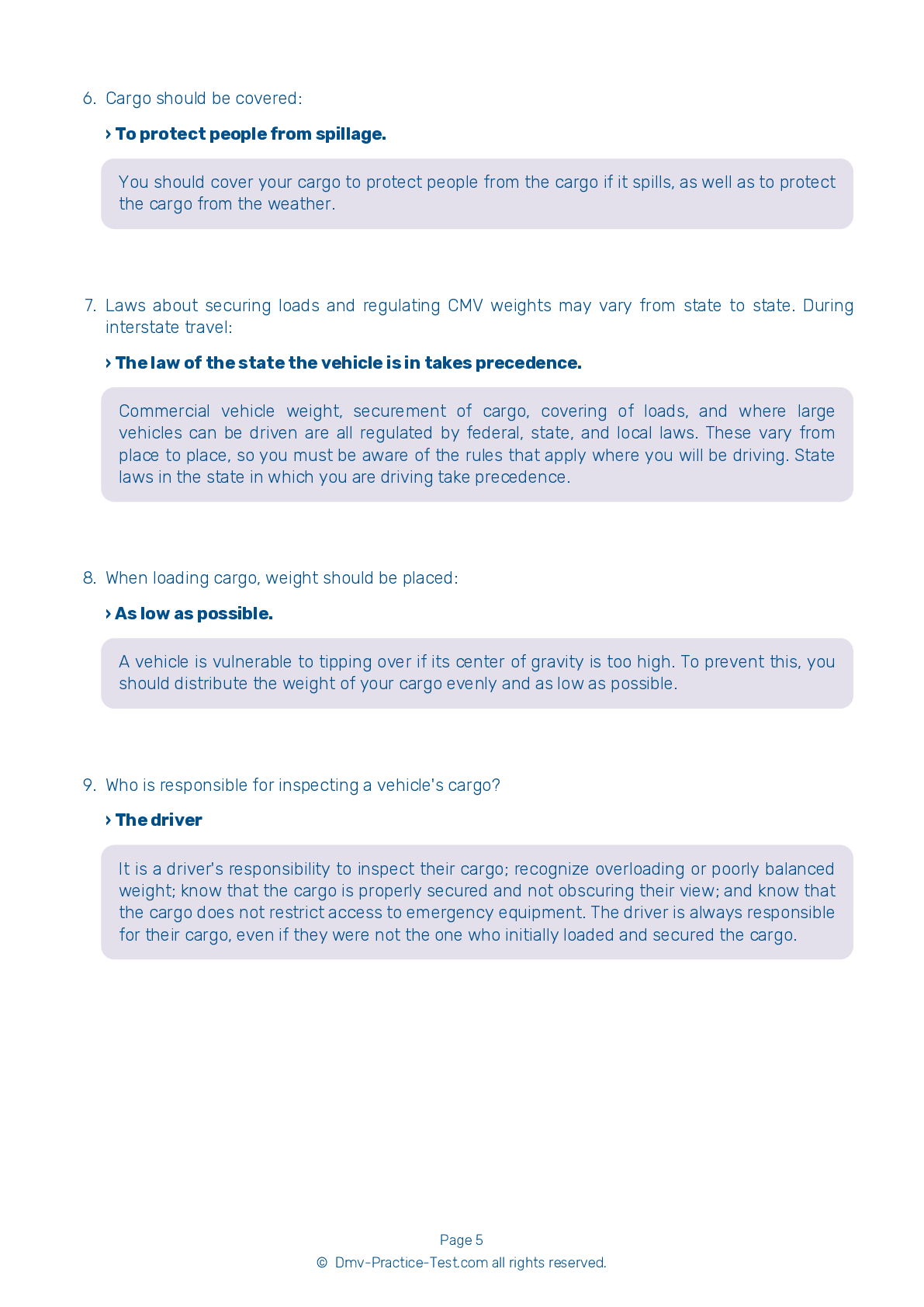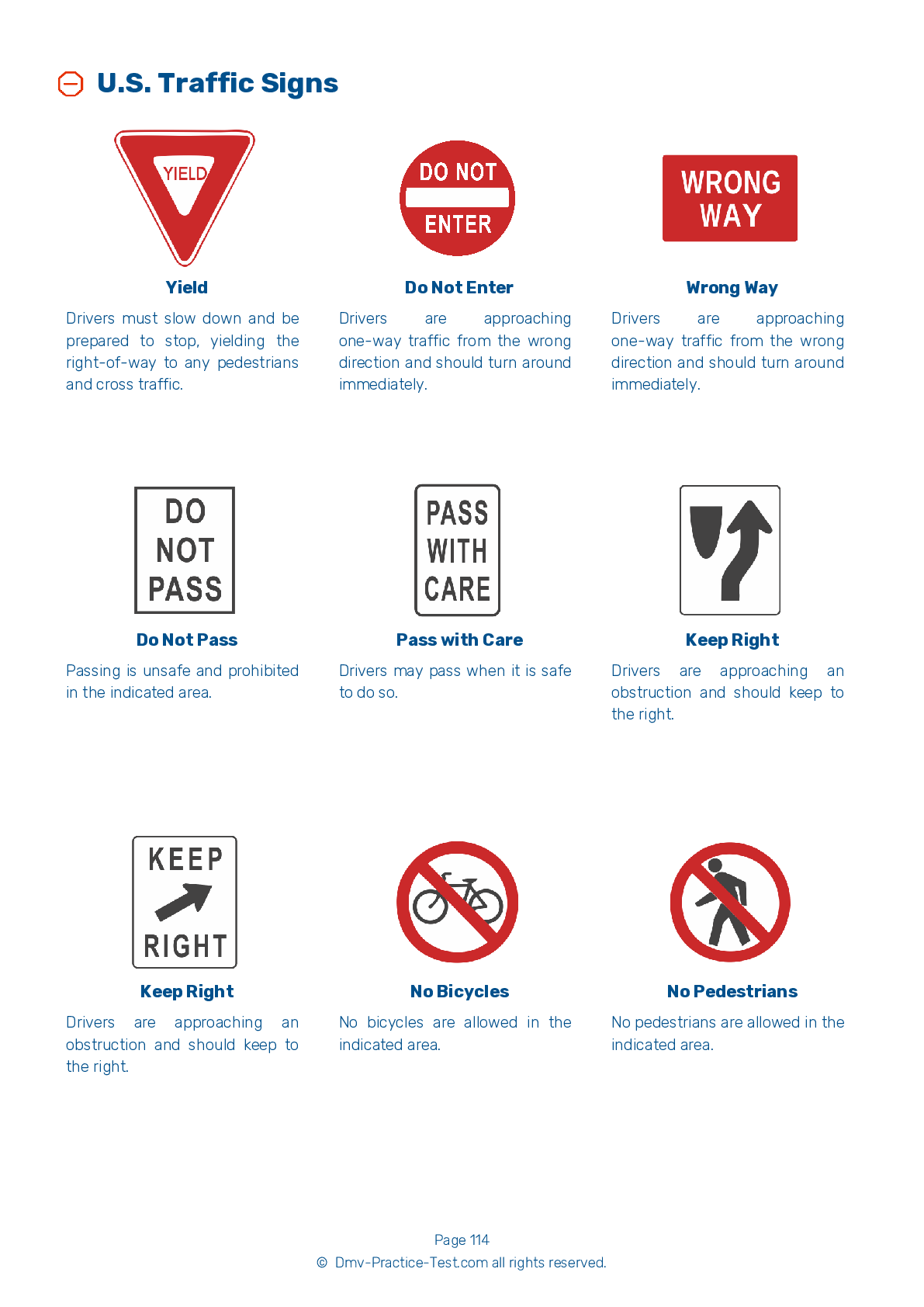Combination #2
Combination Vehicles Practice Test | Virginia 2026 #2 Page 2 of 3
Train for FREE online with our Virginia CDL combination vehicle test. The official exam test consists of several obligatory parts, with all of them checking your knowledge of different blocks of road rules. If you need to obtain a VA combination license in 2026, practice as much as possible. Free sample tests published on our website will help you check and improve your knowledge and boost your grades. Please bear in mind that DMV requirements for issuing a combination license may vary from state to state.
20
16
20
8 . When backing up your tractor while coupling it to a trailer, the trailer brakes should be:
Correctly following the steps to couple and uncouple trailers is vital to safely operating a combination vehicle. Before backing your tractor under the trailer while coupling, make sure your trailer brakes are locked.
9 . Look into the back of the fifth wheel:
While inspecting a coupling, you should go under the trailer and look into the back of the fifth wheel. Ensure that the fifth wheel jaws are secured around the shank of the kingpin.
10 . What does an Anti-Lock Braking System (ABS) do?
An Anti-Lock Braking System (ABS) helps prevent wheel lockup during hard braking. If ABS detects impending lockup, it reduces braking pressure to a safe level.
11 . Keeping cargo low can:
Rollovers can happen when a combination vehicle is turned too quickly. To help prevent the risk of rollover, it is important to keep the vehicle's center of gravity low by loading cargo as close to the ground as possible.
13 . To find out if a vehicle that was built before 1998 has an Anti-Lock Braking System (ABS), you can:
If you are operating a vehicle built before 1998 and are unsure if the trailer has an Anti-Lock Braking System (ABS), you can check under the trailer for wheel speed sensors coming from the back of the brakes.
14 . If you must cross traffic while driving a combination vehicle, you should:
Combination vehicles require more space on the road than other vehicles. When entering or crossing traffic while driving a combination vehicle, it is especially important that there is a large enonugh gap in traffic to safely do so.
Search the best driving school in your neighbourhood
2026 Virginia | Frequently Asked Questions
A CDL Class B license in Virginia allows you to operate single vehicles with a gross vehicle weight rating (GVWR) of 26,001 pounds or more, or towing a vehicle not exceeding 10,000 pounds GVWR. This includes buses, dump trucks, delivery trucks, and utility vehicles. It doesn't permit the operation of Class A vehicles unless the proper endorsements are obtained.
A Class B Commercial Driver's License (CDL) in Virginia allows you to operate single vehicles with a gross vehicle weight rating (GVWR) of 26,001 pounds or more, or any such vehicle towing another not exceeding 10,000 pounds. This includes buses, farm labor vehicles, dump trucks, delivery trucks, and utility vehicles.
To acquire a Class B CDL license in Virginia, you must be at least 18 years old (21 for interstate driving), have a valid Virginia driver's license, pass a vision test and a two-part knowledge test, and successfully complete a skills test in a vehicle representative of the type you'll be driving. You must also provide proof of identity, residency, and social security number.
In Virginia, you must be at least 18 years old to qualify for a Class B CDL license for intrastate driving (within Virginia only). However, if you plan to drive interstate (across state lines), or haul hazardous materials, you must be at least 21 years old.
Endorsements aren't necessary for a Class B CDL license, but they grant additional privileges. For example, an "H" endorsement allows the transport of hazardous materials, while a "P" endorsement permits passenger transport. To obtain an endorsement, you must pass additional written and/or skills tests related to the specific type of commercial vehicle operation.
The Class B CDL skills assessment in Virginia comprises three parts: pre-trip vehicle inspection, basic vehicle control, and on-road driving. You'll need to demonstrate your ability to inspect your vehicle, show that you can control it in a variety of situations, and prove that you can safely drive it in traffic.
Yes, Class B CDL license holders in Virginia are limited to operating vehicles with a GVWR of 26,001 pounds or more, or towing vehicles weighing less than 10,000 pounds. They cannot operate Class A combination vehicles. Additionally, without proper endorsements, they can't drive passenger vehicles, school buses, or vehicles carrying hazardous materials.
Yes, in Virginia, you can take the written Class B CDL test in several languages besides English. These include Spanish, Korean, Vietnamese, and others. However, federal regulations require that all CDL applicants demonstrate proficiency in English to ensure they can understand traffic signs and safety rules.
Yes, you can request accommodations for the Class B CDL written exam in Virginia due to a disability. The Virginia Department of Motor Vehicles (DMV) provides reasonable accommodations as required by the Americans with Disabilities Act. Contact your local DMV office in advance to discuss your specific needs and arrange appropriate accommodations.
In Virginia, if you fail the Class B CDL written test, you can retake it. However, you must wait at least 15 days between each attempt. There is also a re-examination fee for each subsequent attempt. It's recommended to study the CDL manual thoroughly before retesting to improve your chances of passing.
